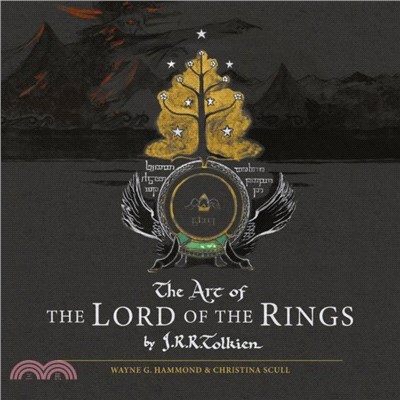The Sustainable Fashion Quest:Innovations in Business and Policy
商品資訊
ISBN13:9780367720735
出版社:PBKTYFRL
作者:Nikolay Anguelov
出版日:2021/06/15
裝訂/頁數:平裝/208頁
規格:17.8cm*25.4cm (高/寬)
定價
:NT$ 2999 元優惠價
:90 折 2699 元
無庫存,下單後進貨(到貨天數約45-60天)
下單可得紅利積點:80 點
商品簡介
相關商品
商品簡介
When thinking about lowering or changing consumption to lower carbon footprints, the obvious offenders come easily to mind: petroleum and petroleum products, paper and plastic, even food, but not clothes. When people evaluate ways to lower their personal carbon footprint by changing purchasing habits, they are bombarded with information to avoid petroleum and petroleum products, plastics, paper, even food, but not clothes. Most consumers do not think of clothes as a source of environmental damage.
Yet, clothes are made with petroleum products through chemically-laden industrial processes that generate significant pollution. The fashion industry is among the largest organic water polluters in the world, accounting for significant greenhouse gas emissions and generating massive amounts of waste as a function of the frequent discarding of used clothing. In the Dirty Side of the Garment Industry: Fast Fashion and Its Negative Impact on Environment and Society, author Nikolay Anguelov exposed the ecological damage from the fast-fashion business model.
In this book, The Sustainable Fashion Quest: Innovations in Business and Policy, the author takes this one step further by focusing on solutions. This book uses the familiar (yet complex) industry of fashion as a lens to examine how business pressures and national and international policies can have both positive and negative social and ecological impacts. It provides an analysis of extant and emerging policies to address the divergence in the ongoing quest to maximize economic development and minimize the social costs of the industrialization process.
It also examines emerging technologies and innovative business models that have the potential to revolutionize how fashion is perceived, manufactured, and consumed. This book begins with an introductory letter that outlines the social and environmental issues facing the fashion industry, as well as emphasizing the seriousness and urgency of addressing them. Each chapter then focuses on a major aspect of the industry with an increasing emphasis on policy.
The chapters outline the impact of global-level and business-level decisions on the industry's success, its social and environmental impact, and its relationship to consumers. The goal of the book is to define that transition, explain its challenges, and educate readers on the possibilities to become powerful drivers of change through their professional actions and their personal behavior as consumers. While the book specifically analyzes the fashion industry, it also explains the implications for other industrial sectors.
It uses a product everyone is familiar with (we all buy clothes, after all) to examine the decisions, impacts, and policies shaping the industry behind the scenes. The linkages are applicable to other fast-moving consumer goods (FMCG) business sectors, such as consumer electronics, which are starting to face sustainability criticism for relying on a business model of promoting a high frequency of repeat purchasing.
Yet, clothes are made with petroleum products through chemically-laden industrial processes that generate significant pollution. The fashion industry is among the largest organic water polluters in the world, accounting for significant greenhouse gas emissions and generating massive amounts of waste as a function of the frequent discarding of used clothing. In the Dirty Side of the Garment Industry: Fast Fashion and Its Negative Impact on Environment and Society, author Nikolay Anguelov exposed the ecological damage from the fast-fashion business model.
In this book, The Sustainable Fashion Quest: Innovations in Business and Policy, the author takes this one step further by focusing on solutions. This book uses the familiar (yet complex) industry of fashion as a lens to examine how business pressures and national and international policies can have both positive and negative social and ecological impacts. It provides an analysis of extant and emerging policies to address the divergence in the ongoing quest to maximize economic development and minimize the social costs of the industrialization process.
It also examines emerging technologies and innovative business models that have the potential to revolutionize how fashion is perceived, manufactured, and consumed. This book begins with an introductory letter that outlines the social and environmental issues facing the fashion industry, as well as emphasizing the seriousness and urgency of addressing them. Each chapter then focuses on a major aspect of the industry with an increasing emphasis on policy.
The chapters outline the impact of global-level and business-level decisions on the industry's success, its social and environmental impact, and its relationship to consumers. The goal of the book is to define that transition, explain its challenges, and educate readers on the possibilities to become powerful drivers of change through their professional actions and their personal behavior as consumers. While the book specifically analyzes the fashion industry, it also explains the implications for other industrial sectors.
It uses a product everyone is familiar with (we all buy clothes, after all) to examine the decisions, impacts, and policies shaping the industry behind the scenes. The linkages are applicable to other fast-moving consumer goods (FMCG) business sectors, such as consumer electronics, which are starting to face sustainability criticism for relying on a business model of promoting a high frequency of repeat purchasing.
主題書展
更多
主題書展
更多書展今日66折
您曾經瀏覽過的商品
購物須知
外文書商品之書封,為出版社提供之樣本。實際出貨商品,以出版社所提供之現有版本為主。部份書籍,因出版社供應狀況特殊,匯率將依實際狀況做調整。
無庫存之商品,在您完成訂單程序之後,將以空運的方式為你下單調貨。為了縮短等待的時間,建議您將外文書與其他商品分開下單,以獲得最快的取貨速度,平均調貨時間為1~2個月。
為了保護您的權益,「三民網路書店」提供會員七日商品鑑賞期(收到商品為起始日)。
若要辦理退貨,請在商品鑑賞期內寄回,且商品必須是全新狀態與完整包裝(商品、附件、發票、隨貨贈品等)否則恕不接受退貨。
























